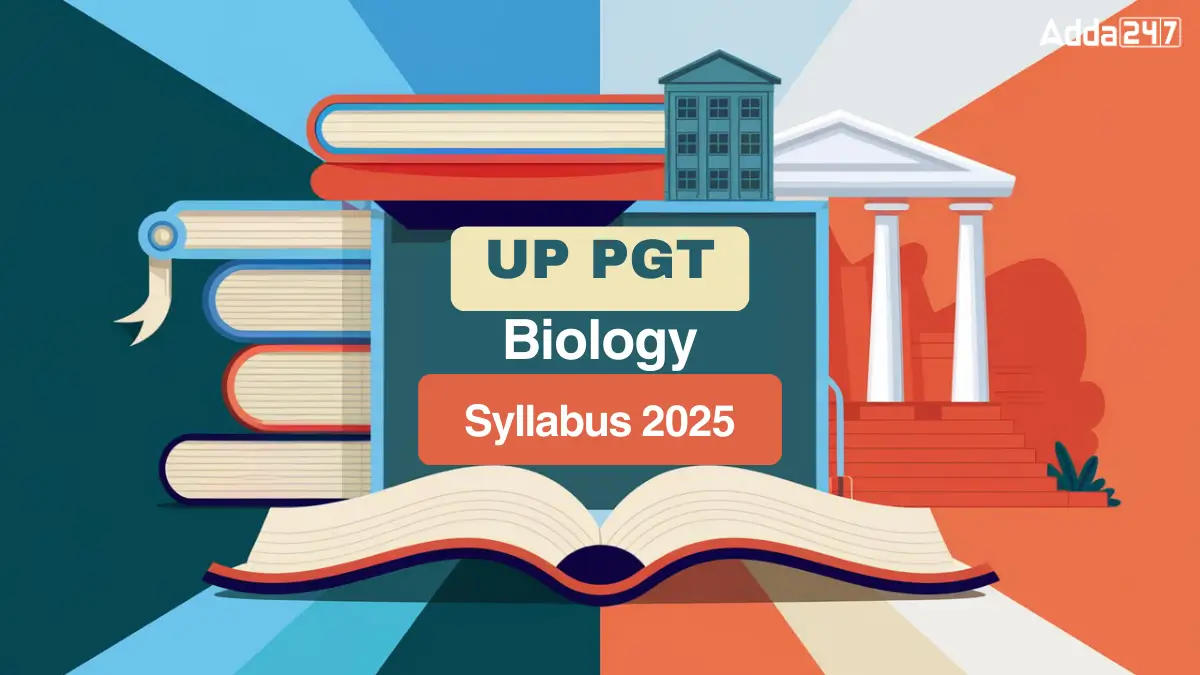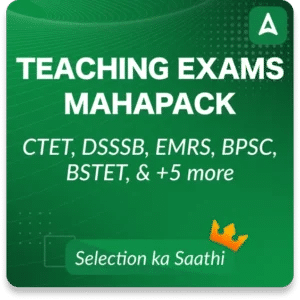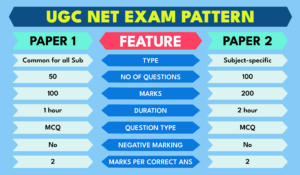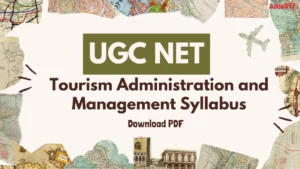Table of Contents
The Uttar Pradesh Secondary Education Services Selection Board (UPSESSB), Allahabad, has officially released the UP PGT Biology Syllabus 2025, providing candidates with a structured framework to prepare effectively for the upcoming exam. The syllabus covers core biological concepts, applied sciences, and recent developments in the field, ensuring a thorough assessment of subject knowledge.
Aspirants must go through the UP PGT Biology Syllabus in detail to identify key areas requiring focused study. Understanding the syllabus will streamline preparation, improve conceptual clarity, and enhance performance in the examination. This article provides a detailed syllabus breakdown, exam pattern, and preparation strategies to help candidates excel in the UP PGT Biology exam.
UP PGT Biology Syllabus 2025
Candidates awaiting their selection for the UP PGT Teacher Vacancy 2025 in Biology must have a strong grasp of fundamental and applied biology concepts. The syllabus is designed to test knowledge in Botany, Zoology, Microbiology, Ecology, Biotechnology, and Genetics, ensuring a comprehensive evaluation of subject expertise.
The UP PGT Biology Syllabus 2025 includes topics such as cell biology, human and plant physiology, molecular genetics, biodiversity, and evolution. Candidates should focus on both theoretical and practical applications, as the exam aims to assess conceptual depth and scientific reasoning. Thorough preparation across all sections is essential for a high score and selection.
UP PGT Biology Exam Pattern 2025
The UP Post Graduate Teachers Biology exam follows a structured pattern to evaluate candidates’ understanding of the subject. It is a written exam designed to test conceptual knowledge and application skills with 125 multiple-choice questions (MCQ). Being aware of this pattern will let the aspirants be aware of the structure of the exam and let the candidates decide their strategies effectively for their exams. Here is the structured exam pattern, to make you understand the exam easily:
| UP PGT Arts Exam Pattern | |||||
| Examination Scheme | Total Questions | Marks per Question | Total Marks | Exam Duration | Answer Options per Question |
| 125 MCQs | 3.4 marks | 425 marks | 120 minutes | 4 options (only 1 correct) | |
| Question Type | Multiple Choice Questions (MCQs) | ||||
| Marking Scheme | No negative marking | ||||
| Compulsory Questions | All questions are compulsory | ||||
| Focus Areas | Botany, Zoology, Microbiology, Ecology, Biotechnology, and Genetics | ||||
Detailed UP PGT Biology Syllabus 2025
The UP PGT Biology syllabus is designed to assess candidates in diverse biological disciplines, ensuring a well-rounded evaluation of their expertise. The syllabus covers classical and modern biology, integrating recent scientific advancements. Aspirants must prepare thoroughly for botanical sciences, zoological principles, genetics, biotechnology, and ecological interactions. A structured study plan focusing on core topics and applied knowledge will be essential for success.
| Detailed UP PGT Biology Syllabus 2025 | |
| Zoology | |
| Topic | Subtopics |
| Non-Chordates | Classification and characteristics of non-chordates; Nutrition and reproduction in Protozoa, Life cycles of Entamoeba, Paramecium, Obelia, Taenia, and Wuchereria bancrofti; Adaptive radiation in Mollusca; Larval forms in Crustacea and Echinodermata |
| Chordates | Origin and classification of chordates; Structure and functions of Herdmania, Amphioxus, Scoliodon, Uromastyx, Columba; Comparative anatomy of vertebrate organ systems; Characteristics and affinities of Prototheria, Metatheria, and Eutheria |
| Developmental Biology | Embryonic development in Amphioxus, Frog and Chick; Implantation and placenta formation in mammals; Metamorphosis in insects; Laws of cellular differentiation |
| Environmental Biology & Toxicology | Ecological succession, Inter- and intra-species relationships, Limiting ecological factors, Aquatic & terrestrial habitats, Conservation of resources, Environmental toxins, Toxic responses |
| Wildlife & Economic Zoology | Endangered species of India, Wildlife conservation (sanctuaries, national parks, biosphere reserves); Activities of wildlife conservation organizations; Economic importance of protozoa and helminth parasites; Apiculture, Sericulture, Lac culture, Pearl farming, Pisciculture; Economic value of mammals; Medical products from animals |
| Biostatistics | Measures of central tendency and variation; Probability; Analysis of variance; T-test, Chi-square test; Normal, binomial, and Poisson distributions |
| Physiology & Biochemistry | Digestion, Respiration, Circulation, Excretion, Endocrine regulation, Muscle contraction, Enzyme kinetics, Energy metabolism, Immunity, AIDS |
| Animal Behavior | Instinctive and learned behaviors; Animal communication; Migration in birds & fishes; Behavioral ecology |
| Botany | |
| Plant Diversity | Classification and evolution of algae, fungi, bryophytes, pteridophytes, and gymnosperms |
| Plant Anatomy & Morphology | Internal structure of root, stem, leaf, and flower; Primary and secondary growth; Adaptive modifications |
| Plant Anatomy & Morphology | Photosynthesis, Respiration, Plant growth regulators, Water and mineral absorption, Transpiration, Nitrogen metabolism |
| Cell Biology & Genetics | Structure and functions of the cell, Chromosomes, DNA replication, Gene expression, Mutation, Mendelian and molecular genetics |
| Ecology & Environment | Ecosystem structure, Energy flow, Biogeochemical cycles, Pollution, Biodiversity conservation, Economic Botany Important medicinal, food, and fiber plants, Ethnobotany, Role of plants in human welfare |
| Plant Biotechnology |
Tissue culture, Genetic engineering, GM crops, Plant breeding, Applications in agriculture and industry |
UP PGT Biology Syllabus PDF Download
Candidates must download the official UP PGT Biology Syllabus 2025 PDF to get a detailed topic list and exam guidelines. The PDF outlines subject-wise topics, mark distribution, and key focus areas, helping aspirants align their preparation with the exam requirements. Having a syllabus PDF on hand allows candidates to structure their study schedule, prioritize important topics, and track progress effectively. Download the UP PGT Biology Syllabus 2025 PDF using the link below:
Download the UP PGT Biology Syllabus 2025 PDF




 UGC NET Exam Pattern 2025 for Paper 1 an...
UGC NET Exam Pattern 2025 for Paper 1 an...
 UGC NET Tourism Administration and Manag...
UGC NET Tourism Administration and Manag...
 UGC NET Law Syllabus 2025 and Exam Patte...
UGC NET Law Syllabus 2025 and Exam Patte...














